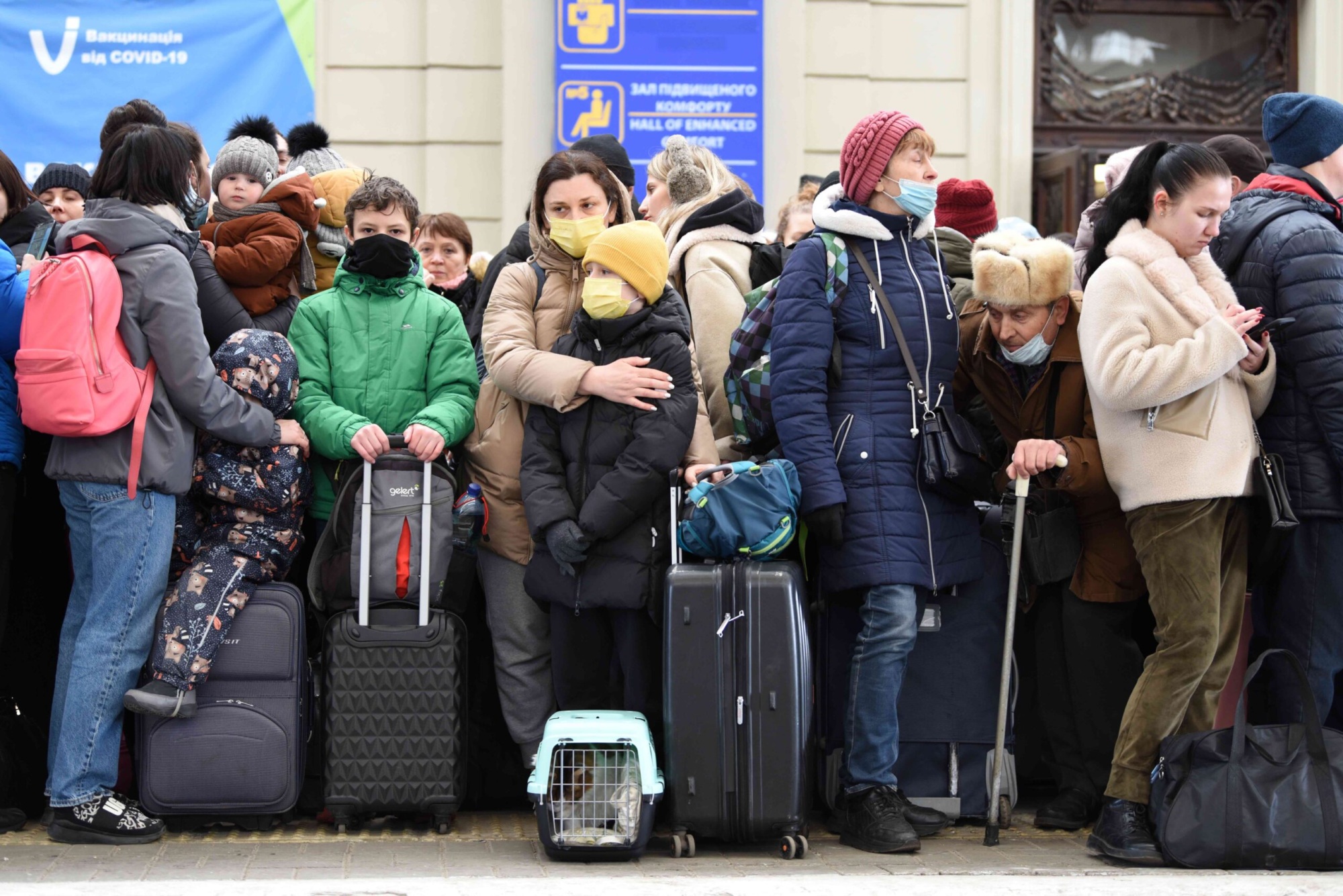Responding to the Ukraine Crisis: What Nonprofits and Foundations Need to Know

Lviv, Ukraine – February 26, 2022. People in railway station of western Ukrainian city of Lviv waiting for the train to Poland.
(People in railway station of western Ukrainian city of Lviv waiting for the train to Poland.)As Americans absorb the news about the devastating humanitarian crisis in Ukraine, many individuals and organizations are looking for ways to get involved and provide assistance to the people of Ukraine. With growing civilian casualties and food shortages across the country, the need for a unified response from the international community has never been more urgent. We also know that, in addition to providing direct humanitarian assistance, organizations need to engage in advocacy with international bodies and government institutions. The following article provides important tips for nonprofits and funders to be bold in their advocacy around ending the conflict and protecting civilian populations in Ukraine.
International Grantmaking is Possible
Foundations and public charities can make grants to international entities working overseas (even if those organizations have not received tax-exempt determinations from the IRS). Tech Soup and NGOSource have worked with the IRS to streamline one of the more frequently used and cumbersome forms of international grantmaking called the “equivalency determination.”
Funders can also use another technique to get support to Ukrainian relief efforts. Private foundations may award grants to international organizations working overseas that do not have IRS recognition using a technique called the “expenditure responsibility rule” as explained by Bolder Advocacy’s factsheet on private foundations making donations to non-public charities.
The need for relief is urgent. Foundations may hesitate to award grants to international organizations due to paperwork or risk of fines. But these challenges should not stand in the way of organizations boldly advocating on behalf of their their missions during ongoing humanitarian crises caused by wars in Ukraine, Yemen and other conflict zones around the world . It is important to act strategically and use all the tools available for IRS-accepted methods for international grantmaking. Private foundations can also contract with international organizations to help fulfill their charitable mission, and these contracts, would not need to follow IRS grantmaking rules.
The Center for Disaster Philanthropy has deep roots in responding to humanitarian crises, and reminds donors to center Ukrainians in their grantmaking, to support local and established organizations to ensure Ukrainians are in charge of their future and recovery. Not only is this good advice for grantmaking, but also good recommendations for advocacy to support an equitable recovery.
International Advocacy is Possible
Public charities can also lobby US and international bodies. Bolder Advocacy’s International Advocacy factsheet explains how public charities can influence US and international bodies for assistance, including:
- When international activities count as lobbying
- Which international bodies are legislative bodies
- Whether and when the UN is a legislative body
- Whether ambassadors are considered legislators
Advocates and funders alike must follow international and US laws regulating advocacy and grantmaking. At the top of that list, nonprofits must do the following:
- Register and report with the US Department of Justice as required under the Foreign Agent Registrations Act if applicable. This Act applies primarily for those soliciting funds on behalf of a foreign government or engaged in political activities within the US at the request of or under direction of a foreign entity.
- Register as a lobbyist in the country in which you are engaged with foreign officials if required. Check The International Center for Not for Profit Law for resources.
- Register in states prior to soliciting funds as explained by The National Council of Nonprofits.
- Track and report your lobbying to the IRS and funders.
Our legal advisors at Bolder Advocacy can help with questions around whether and when does an activity amount to lobbying both domestically and overseas. Our hotline is available at 866-NP-LOBBY or advocacy@afj.org